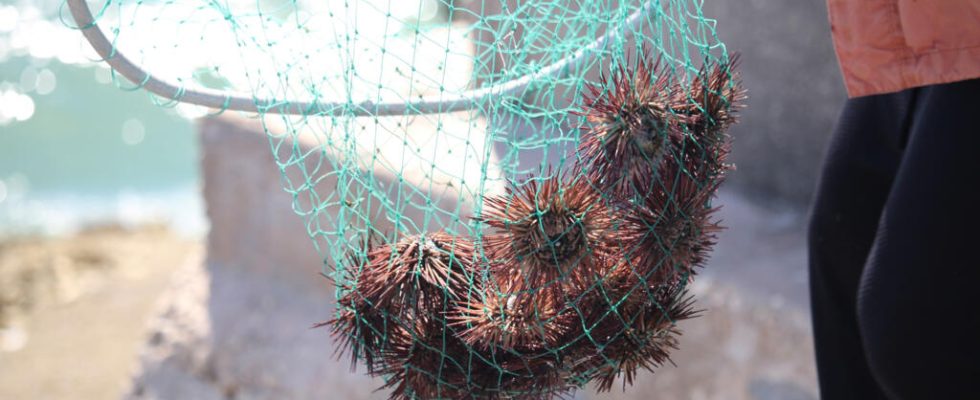In the Mediterranean Sea, scientists and fishing professionals are concerned about the drop in the number of sea urchins. These woodpecker-covered marine animals are thought to be victims of overfishing and climate change.
Mehdi Bourrou has been traveling the blue coast for 20 years aboard his small motorboat equipped for sea urchin fishing. This year, he had to stop diving two months before the end of the official season, scheduled for April 15. ” It was really alarming. From the month of February, we saw that there were not enough sea urchins. We have to tell a customer who has ordered three dozen, that we don’t have any and that we have to keep some for the others, and I only give two dozen, he laments. This is not enough to sustain the activity. Here we are on the verge of bankruptcy “.
With these five colleagues from L’Estaque, they fish half as many sea urchins as they did 20 years ago. In question, according to him, the competition of amateurs more and more numerous. ” The fleet of boaters, poachers, exploded and when there are many requests, in December, they don’t care if the sea urchins are empty, storm the fisherman. They sell them on the street, behind cars, in bars. Unfortunately, some unscrupulous restaurateurs and scalers take the goods from them. »
Up to 1 000 sea urchins collected
These non-professional fishermen are limited to four dozen sea urchins a day, but some are challenged with many more, including around the marine park, a protected area run by Marie Bravo Monin. ” In 2021, we had an intervention on a person who had taken nearly 1000 sea urchins, so he was well beyond the quota he had as authorization per day, there, we are on poaching “.
But overfishing and overconsumption of sea urchins are not the only culprits. Improved treatment of wastewater discharged into the Mediterranean has also had an impact. ” The first phenomenon is that the sea urchins took advantage of the nutrient inputs from the treatment plants. More than ten or twenty years ago, the upgrading of these treatment plants inevitably reduced the food resources for the sea urchins. But we also have changes in the plankton “, continues Marie Bravo Monin.
Climate change, the damage of carbon dioxide on the sea are all factors that may have aggravated the situation. On the island of Corsica, free zones without sea urchin fishing are being tested to try to reverse the trend.
► Also to listen: France: the “massive” mortality of black sea urchins in Guadeloupe worries
